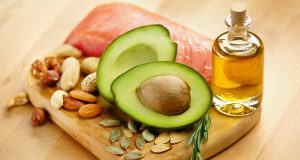Excess sugar doesn’t just affect blood sugar. It triggers elevations in blood pressure, cholesterol, and heart rate – increasing your risk of heart disease, heart attack, stroke, and a host of other diabetes-related complications.
New research is now connecting the consumption of sugar with accelerated cancer growth. Sugar seems to exacerbate the “Warburg Effect”, the process through which tumor cells make energy by rapidly breaking down glucose. The more glucose energy that is available, the more energy is received by the proteins inside the tumor cells, prompting them to grow quickly.
It seems with each passing day we are learning more about the evils of sugar and the devastation it causes on the human body. Decades ago, the sugar industry paid off Harvard scientists to lie about what roles sugar and fat play in your diet. Even though there was plenty of evidence to prove them wrong, these scientists chose to publish only the studies that supported their scheme.
Their goal was to reduce or eliminate the role that sugar plays in heart disease. They had to have a bad guy, so they suggested that fat played a bigger role than it actually does. Their review appeared in the highly trusted New England Journal of Medicine in 1967, promoting the misconception that fat is bad for health, when sugar is the true villain.
Today, 10% of people in the U.S. are addicted to sugar. The word addiction is no accident; studies now suggest that sugar induces a reward stimulus in the brain similar to that of nicotine, cocaine, and heroin. Over time, the brain becomes addicted to sugar, looking for its next fix. At the same time, the brain also becomes de-sensitized to sugar, needing more and more to satisfy its craving. It makes the person dependent upon sugar, changing the way we think and behave.
It is absolutely critical for diabetics (and non-diabetics alike) to consume as little sugar as possible. The foundation of that goal is to identify which foods contain sugar, so that we can avoid them. Whether you consume a food that contains refined sugar, or a food that is a simple carbohydrate, the body receives both in the same way.
The pancreas releases insulin in order to move the sugar from the bloodstream into the cells where it can be used for energy. If there is not a sufficient amount of insulin available, or if the body’s cells are resistant to insulin, the excess sugar remains in the bloodstream, leading to high blood sugar.
Yes, there are the “obvious” sources of sugar and carbohydrates: candy, cookies, cakes, pies, sodas, bread, and pasta, but sugar is also hiding in places you may never suspect. Condiments like ketchup, salad dressings, and barbeque sauces are all sources of hidden sugar.
Even “healthy foods” like yogurt, granola, canned fruit, and fruit juices can be full of sugar, too. It is crucial for diabetics to check nutritional labels to make sure manufacturers are not sneaking added sugar into your diet. Check out these 10 sugary foods you thought were healthy!
Just because you aim to avoid sugar, does not mean you can’t enjoy the foods you eat. Take your favorite foods and recipes, and get creative with alternative ingredients and preparations. It is possible to avoid sugar in your diet, and still be satisfied!
Cancer is one of the most, if not the most, feared chronic disease. It’s absolutely shocking and heart-breaking to think about the fact that billions of people consume sugar every single day, unaware that they are literally “feeding” their risk for cancer. Now that you are aware, you can be empowered to make the positive changes necessary to combat cancer, and live your best health!
Sources:
https://www.usatoday.com/story/news/nation-now/2017/10/18/relationship-between-sugar-and-cancer-now-clearer-scientists-say/775963001/
https://www.medpagetoday.com/cardiology/cardiobrief/60177
 Diabetic Kitchen
Diabetic Kitchen





Recent Comments